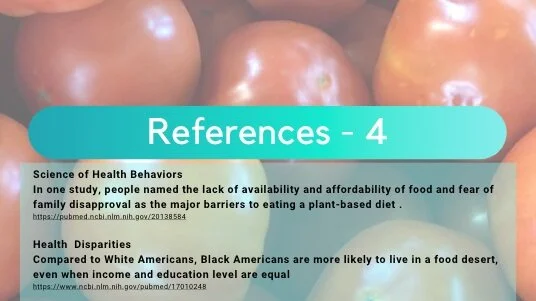How Your Glass Baking Dish Can Help You Avoid Pillsbury TransFats This Holiday [Recipe]
When we talk about ultra-processed foods, the topic of fat inevitably comes up. Of all the misconceptions about fat, one of the most misguided is that all fat is BAD for you. Like most nutrients that the body needs to function properly, naturally-occurring fat is important in moderation. But, artificial trans-fats (partially hydrogenated oils) aren’t! You might find these factory-made fats in some of our most delicious comfort foods: pastries, frozen pizzas, and dinner rolls! But, trans-fats are downright unhealthy. As the Winter holiday season approaches, the surefire way to avoid trans-fats in your lip-smacking dinner rolls is to grab your own glass baking dish (pyrex baking dish or otherwise) and make your own!
What Does Moderation Mean When it Comes to Fat?
Remember that fat packs lots of energy. 1 gram of fat = 9 calories, compared to only 4 calories from 1 gram of carbs and protein.
Most scientific organizations recommend limiting saturated fats and prioritizing unsaturated fats. That's because research shows that unsaturated fats are linked to good heart health.
According to the the American Heart Association, adults should limit their saturated fats to no more than 5-6% of all your calories for the day.
You know what else the American Heart Association says? Avoid artificial trans-saturated fats! (“trans fats” for short). More below…
Want to take more deep dives into the link between your habits and your health? Click here to become a Byte Wellness Healing Member and get daily wellness texts and videos like this one.
What are Trans-fats (Partially Hydrogenated Oils)?
Artificial trans-fats are fats that aren’t naturally-occurring. They’re created in factories and are added to ultra-processed foods in order to prepare foods inexpensively and increase the shelf life. They’re made in factories by adding hydrogen to vegetable oils. That’s why most artificial trans fats show up on your ingredients list as “Partially Hydrogenated Oil.”
Some of the biggest trans-fat offenders include include fast food, packaged desserts on grocery shelves, even margarine.
Trans-fats and Heart Attacks
Trans-fats have been used in the US for more than 40 years. Recently, in the United States, the FDA banned manufacturers from adding these artificial trans fats to foods after 2018, and it’s about time! Peer-reviewed scientific studies linked artificial trans fats to an increased risk of heart attacks as far back as 1993. So, now we all acknowledge that it’s not safe to eat artificial transfats, and at this point, they can no longer be added to our food. Great, right?
Not so fast. As the FDA noted, there could be a years-long lag in removing the foods from the supply that were made before the 2018 trans-fat ban. That means some non-perishable foods with trans fats might still be in circulation.
Some of the biggest culprits are mass-produced dinner rolls and refrigerated dough-to-bake rolls that we might reach for as we create our Holiday dinner menus. According to the ingredients list, Pillsbury Crescent rolls contain artificial trans-fats (partially hydrogenated palm oil, to be precise). Scroll down for receipts!
How to Identify TransFats
We’ll use this real life example of Pillsbury Crescent Rolls (which DO HAVE Trans-fats, according to their ingredients list).
1) Check the nutrition facts label to see that the “Trans Fat” line =0 grams
This is an easy first pass. But, a nutrition facts label that lists “0 grams” of trans-fats doesn’t guarantee a trans-fat-free food. It simply means there are fewer than 0.5grams of trans fats per serving. So, you MUST follow-up with the next step to fully rule out the presence trans-fats.
2) Always check the ingredients list to make sure your food doesn’t have partially hydrogenated oils (another name for trans fats).
Dinner Roll Recipes That Have a Better Fat Profile Than Pillsbury Crescents!
Now that you know how to find trans-fats in your store-bought rolls, and we have evidence of trans-fats in one of the most popular roll brands, what are your options for avoiding the trans-fat trap all together? Bake your own rolls! While you’re at it, you can opt for recipes that raise your heart-healthy fat profile even more by using vegetable oils instead of butter. *Quick note: some recipes substitute shortening for butter. This is not an upgrade as shortening tends to contain trans-fat, while butter does not.
As you browse this recipe for French Bread Rolls From Mel’s Kitchen Cafe, make sure you have your big glass baking dish handy because you just might be tempted to try it!
For more recipes that bring out the best parts of foods, join our Share & Savor wholesome eating course.













![#PWW Recording: Intro to the ISMS-to-ILLNESS Pathway [Video]](https://images.squarespace-cdn.com/content/v1/5c7316af11f7846b135b9fe7/1710538224327-T0IJZP00V691VNMA0QHV/Youtube+Thumbnail.png)
![MLK, Health Justice, and the LA Fires (Happy MLK Day) [Self-Love Letter]](https://images.squarespace-cdn.com/content/v1/5c7316af11f7846b135b9fe7/1737426504384-QZZY5CZUERDA7EGFPRIG/unsplash-image-39rGV19A6A0.jpg)



Sugar is one of the 3 types of carbohydrates in your daily diet. Unlike starch and fiber, sugar is not one of the carbs your body needs.